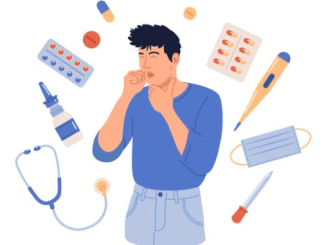As reported by GP Online, MPs warn that ongoing medicine shortages threaten the Pharmacy First scheme, urging the government to empower pharmacists to manage supply issues
Ongoing medicines shortages are not only having a major impact on patients and healthcare professionals, but threaten to erode public confidence in community pharmacy and undermine the government’s flagship Pharmacy First scheme, a report from the House of Commons health and social care select committee warned this week.
Pharmacy First, which launched at the end of January, allows pharmacists to provide advice to patients and issue medicines if appropriate for seven common conditions: sinusitis; sore throat; earache; infected insect bite; impetigo; shingles; uncomplicated urinary tract infections in women.
The first few months of the scheme have proven popular, but if patients continue to struggle to get their medication from pharmacies during shortages, ‘it cannot come as a surprise if they are then reluctant to visit for clinical services’ such as Pharmacy First, the committee said.
Medicines shortages
‘It is also especially worrying that shortages are resulting in patients being directed back into general practice,’ the report warned. ‘Pharmacy First…will fail if people keep having to return to their GP.’
The committee recommended that ‘regulations are updated within three months to allow pharmacists in community settings to make dose and formulation substitutions for out-of-stock items’.
These powers should then be extended – following a government consultation – to allow pharmacists to make generic substitutions, as a way of reducing the need for patients to return to their GP for out-of-stock medicine, the MPs’ report said.
In justifying its call to amend regulations and grant pharmacists additional powers, the committee said: ‘There is a serious risk that any capacity that general practice gains, through services like Pharmacy First, will be negated by the time spent reissuing prescriptions as a result of shortages, thus undermining this initiative.’
Prescribing
Concerns were also raised in the evidence sessions about the cost of over-the-counter (OTC) medicines, which is prompting patients on lower incomes to continue to use GPs for support that could be offered in a community pharmacy. As a result, the committee recommended that OTC medicines supplied under Pharmacy First be free for people on low incomes.
The committee also urged the government to commission an independent review on the resilience of the medicines supply chain, especially for generic medicines.
It called for a review of serious shortage protocols – introduced in 2019 to allow pharmacists to manage any serious shortages without needing to refer patients back to prescribers – which the committee heard are ‘ineffective’ and an administrative burden.
‘The government must get a grip on these shortages. It is not enough to rely on existing policies, which are clearly insufficient,’ the committee warned.
Patient safety
The Royal Pharmaceutical Society has raised concerns that some of the major medicines shortages have been prompted by a huge increase in prescribing, both on the NHS and privately.
The select committee concluded that the government should ‘set out what impact it believes National Patient Safety Alerts have on private prescribing and what scrutiny and enforcement measures are in place to ensure private prescribers adhere to these alerts’.
Further recommendations include:
- overhaul the community pharmacy contractual framework,
- further development of clinical services in community pharmacy settings, including provision of HIV-prevention medication PrEP through community pharmacy,
- ensuring that all pharmacists have adequate access to supervision, training, and protected learning time, along with clear structures for professional career development,
- and an independent review of hospital medicines management.
‘Tackling medicine shortages is another vital component in securing the ability of pharmacy to meet its future potential,’ the committee’s report said. ‘Medicine shortages cannot be ignored and left to become the norm.’
The government typically has two months to respond to select committee reports, but this deadline is unlikely to be met given the general election on 4 July.




Be the first to comment